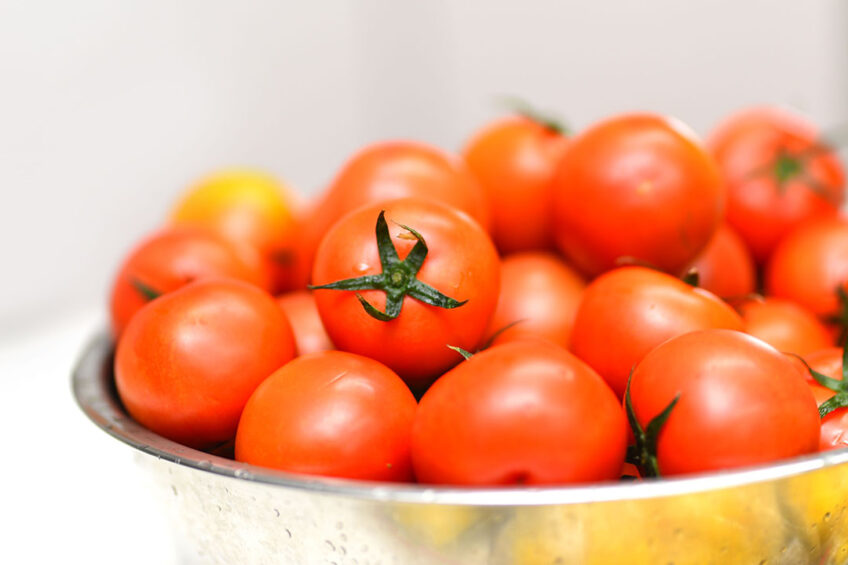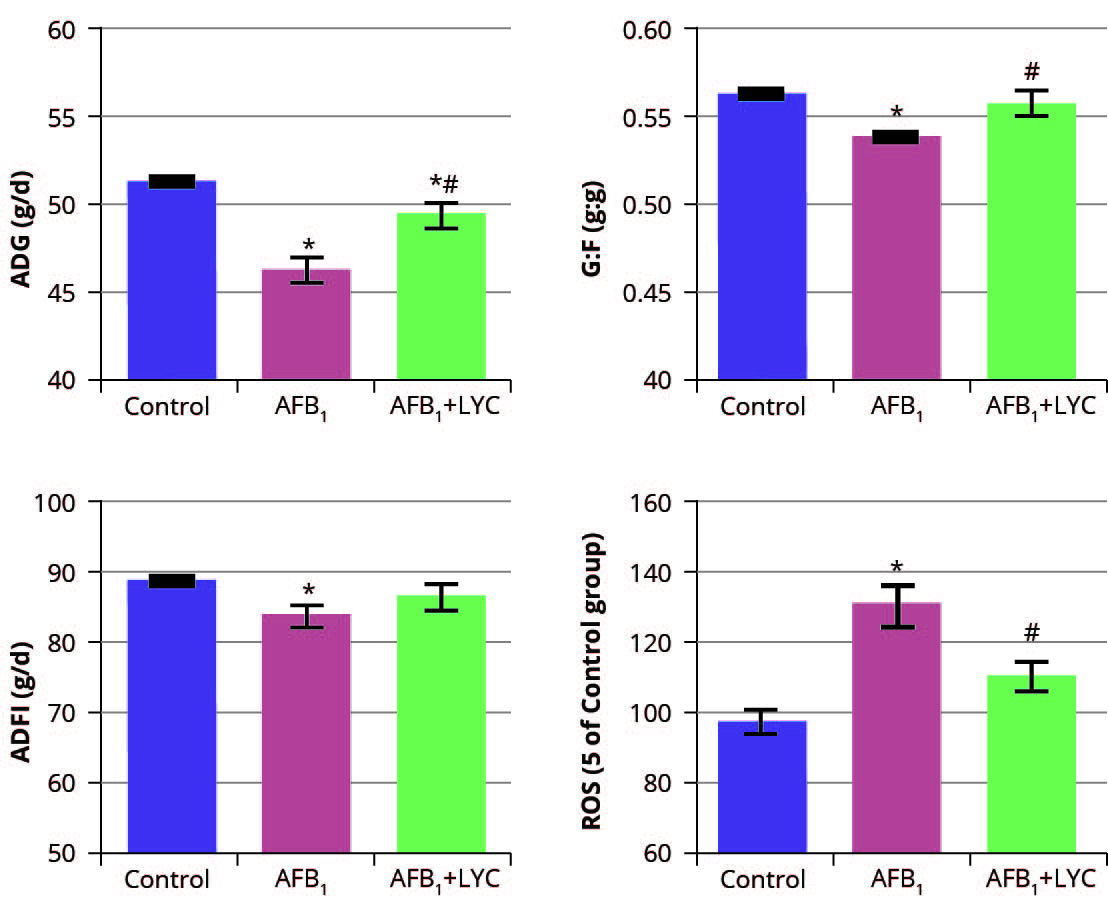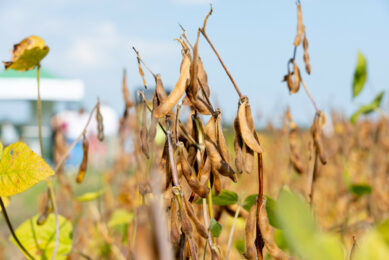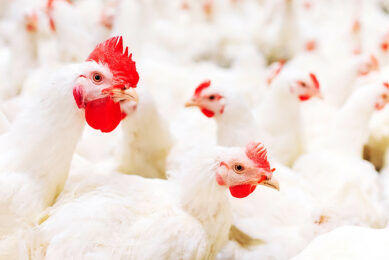Protective effects of lycopene in broilers

Research shows that lycopene, a natural food-derived pigment is protective against aflatoxin B1 in broilers. The study recently published in Poultry Science, explains the benefits of lycopene as a promising dietary modulator for aflatoxin B1-induced injury in broilers.
Mycotoxins are feed-derived risk factors that are detrimental to human and animal health. Aflatoxin B1 (AFB1) has been identified as a group 1 carcinogen by the WHO. The most critical aspect of aflatoxins in animal production is their potential residue presence in animal products. The AFB1 metabolism is accompanied by the overproduction of reactive oxygen species (ROS), leading to oxidative stress, and the mitochondria are the first to be affected as they are major sites of intracellular ROS production. Furthermore, the AFB1-induced mitochondrial injury is the potential mechanism underlying its toxic effects. Thus, the toxicity of AFB1 can be alleviated by improving mitochondrial function. Lycopene is a natural food-derived pigment belonging to carotenoids used in food processing and mainly enriched in fruits and vegetables with a red colour, such as tomatoes, watermelon, and papaya. Lycopene can be used as a dietary botanical bioactive substance with various bioactivities, including antioxidant capacity and therapeutic potential against diseases.
Determining the benefits of lycopene
To determine the protective properties of lycopene against aflatoxin B1, researchers from Yangzhou University investigated the positive effects of lycopene on mitochondrial oxidative injury and dysfunction in the liver of aflatoxin B1-exposed broilers, elaborating on the mechanism that involves the mitochondrial antioxidant capacity, mitochondrial swelling, hepatic ATP concentration, and gene expression for mitochondrial biogenesis. Besides playing key roles in cellular oxidative stress (or redox balance), mitochondria are mediators of cellular energy metabolism, cell apoptosis, and innate immune responses. Given their vital roles in human health and disease, mitochondria represent an important target for the development of therapeutics. As previous reports indicate the negative effects of aflatoxins on growth performance, the researchers of this study also determined the additive’s effects on growth performance. Their study consisted of 3 diets:
- Control diet: no additive, no aflatoxin B1
- AFB1 diet: basal diet with 100 µg/kg aflatoxin B1 (AFB1)
- AFB1 + LYC: basal diet with 100 µg/kg AFB1 + 200 mg/kg lycopene (LYC)
Damaging effects of aflatoxin B1
Liver is considered the target organ for AFB1because it is the organ where most aflatoxins are bioactivated to the reactive 8,9-epoxide form, which is known to bind DNA and proteins, damaging the liver structures and increasing liver weight. In the present study, the increased ROS and hydrogen peroxide (H2O2) levels, decreased mitochondrial glutathione concentration and reduced activities of antioxidant enzymes, glutathione peroxidase and manganese superoxide dismutase in the hepatic mitochondria of AFB1-exposed broilers indicated that the mitochondrial redox balance was disrupted and oxidative stress occurred. Similarly, increased mitochondrial swelling, reduced ATP concentration, and decreased activities of ETC mitochondrial complexes I, II, III, and V were observed in the present study. In addition, the decreased hepatic mRNA expression levels of antioxidant genes were observed in AFB1-exposed broiler primary hepatocytes. Overall, the aflatoxin induced mitochondrial oxidative injury by affecting mitochondrial ROS homeostasis and damaging the antioxidant defence system.
As observed in a similar broiler study, AFB1 reduced feed intake, body weight gain, and caused poor feed conversion rate compared with the control diet – the adverse effects of AFB1 on growth performance being related to a decrease in the protein and energy utilisation as a consequence of a deterioration of the digestive and metabolic efficiency of the birds. Researchers from the Sichuan Agricultural University in China studied the pathogenesis of AFB1-induced immunosuppression in broilers and their results showed that AFB1 induced excessive apoptosis of splenic lymphocytes, which was correlated with increased oxidative stress, evidenced by reduced glutathione peroxidase, glutathione reductase, and catalase activities, and increased malondialdehyde contents.
Protective effects of lycopene
To determine the protective effects of lycopene on mitochondrial oxidative injury and dysfunction in the liver of aflatoxin B1-exposed broilers, the researchers looked at different components of the oxidative system and gene expression of mitochondrial biogenesis, as follows:
- Mitochondrial redox status: Lycopene showed higher mitochondrial glutathione concentrations and glutathione peroxidase and manganese superoxide dismutase activities, and lower H2O2 concentrations than the broilers in the AFB1 group. Lycopene also decreased hepatic ROS concentration in AFB1-exposed broilers.
- Activities of mitochondrial ETC complexes: The lycopene treatment increased activities of mitochondrial electron transfer complexes and reduced mitochondrial swelling. Lycopene group had higher hepatic ATP concentrations than the AFB1 group.
- Gene expression: Compared to the AFB1 group, broilers in the lycopene group showed upregulated mRNA expression levels of hepatic genes (e.g., PGC-1α, NRF1, and TFAM) relating to mitochondrial antioxidant capacity and biogenesis – alleviating mitochondrial dysfunction by improving mitochondrial biogenesis.
Figure 1 – Effects of dietary lycopene (LYC) on performance and hepatic reactive oxygen species (ROS) concentration of aflatoxin B1 (AFB1)-exposed broilers.

Lycopene improves growth
The effects of dietary lycopene supplementation on the growth performance of AFB1-exposed broilers were observed (Figure 1) through decreases in feed intake, daily weight gain and feed utilisation (gain: feed ratio).
The researchers related the benefits of lycopene on growth performance to its improvement on the oxidative status of broilers observed through decreased ROS and hydrogen peroxide (H2O2) levels, increased mitochondrial glutathione concentration and increased activities of antioxidant enzymes, glutathione peroxidase and manganese superoxide dismutase in the hepatic mitochondria of AFB1-exposed broilers (Figure 1).
In a similar broiler study conducted by researchers from the University of Veterinary Medicine Vienna, it was suggested that both the level and length of AFB1 exposure affect the amount of reduction in weight gain of broilers and that different types of rations used in different studies make it impractical to generalise the dose-response relationship regarding weight gain.
The researchers concluded that dietary lycopene protects broilers from aflatoxin B1-induced liver mitochondrial oxidative injury and dysfunction, which is related to its ability to scavenge free radicals, stimulate mitochondrial antioxidant capacity, and maintain mitochondrial biogenesis. “The results of the present study expand our understanding that lycopene or lycopene-enriched materials could be used as promising dietary modulators for aflatoxin B1-induced injury in poultry,” they remarked.
References are available on request.
This article is based on the research paper “Protective effects of lycopene on mitochondrial oxidative injury and dysfunction in the liver of aflatoxin B1-exposed broilers”. The full paper can be accessed in Poultry Science vol 100, issue 11 November 2021.







